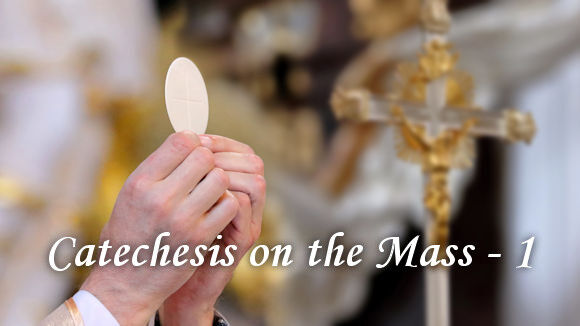
We proclaim your death, O Lord,
and profess your resurrection,
until you come.
As an acclamation after the account of the Last Supper, this wording comes from the Egyptian tradition in a manuscript found in the early 1900s. There are very many like it in use in Eastern Churches, however.
In introducing this acclamation in 1968, in place of informal practices focussing on the Blessed Sacrament newly consecrated upon the altar, our focus is kept in line with the prayer of the priest commemorating the Easter mystery, or paschal mystery, of Our Lord which in fact the whole Mass is making present.
Why “proclaim” and “profess”?
The Lord's death on the cross is a matter of historical record, but its significance needs preaching, proclaiming or announcing as important and needs some explanation.
The Lord's resurrection is a matter of faith, people dispute its truth, so in celebrating Mass we are showing we believe it occurred, we confess, or profess it occurred. We consider the resurrection also to be a sign that his death achieved what it was intended to achieve: conquering death, not ending it yet, but conquering death so that there will be resurrection for all.
We proclaim and profess in the celebration of Mass especially on Sundays. We don't have just a simple liturgy of readings and prayer, or Holy Communion from an earlier celebration Mass, but we celebrate Mass precisely because it has the specific thanksgiving, offering, proclaiming and professing which bring Good Friday and Easter Sunday together on the very day the success of the Lord's offering was seen in the apparitions of the risen Lord to the disciples. Sunday without Mass is an inadequate Sunday.
